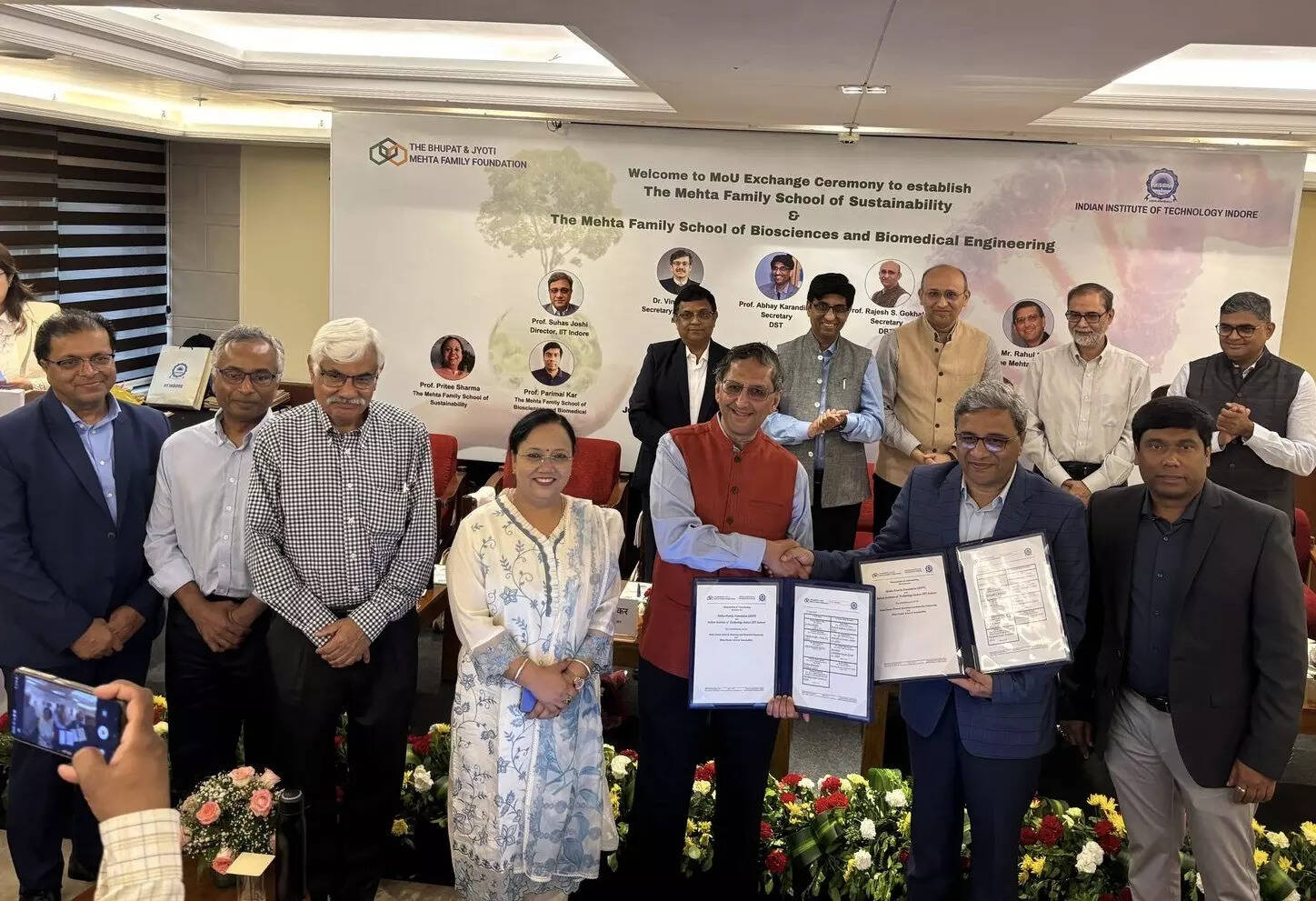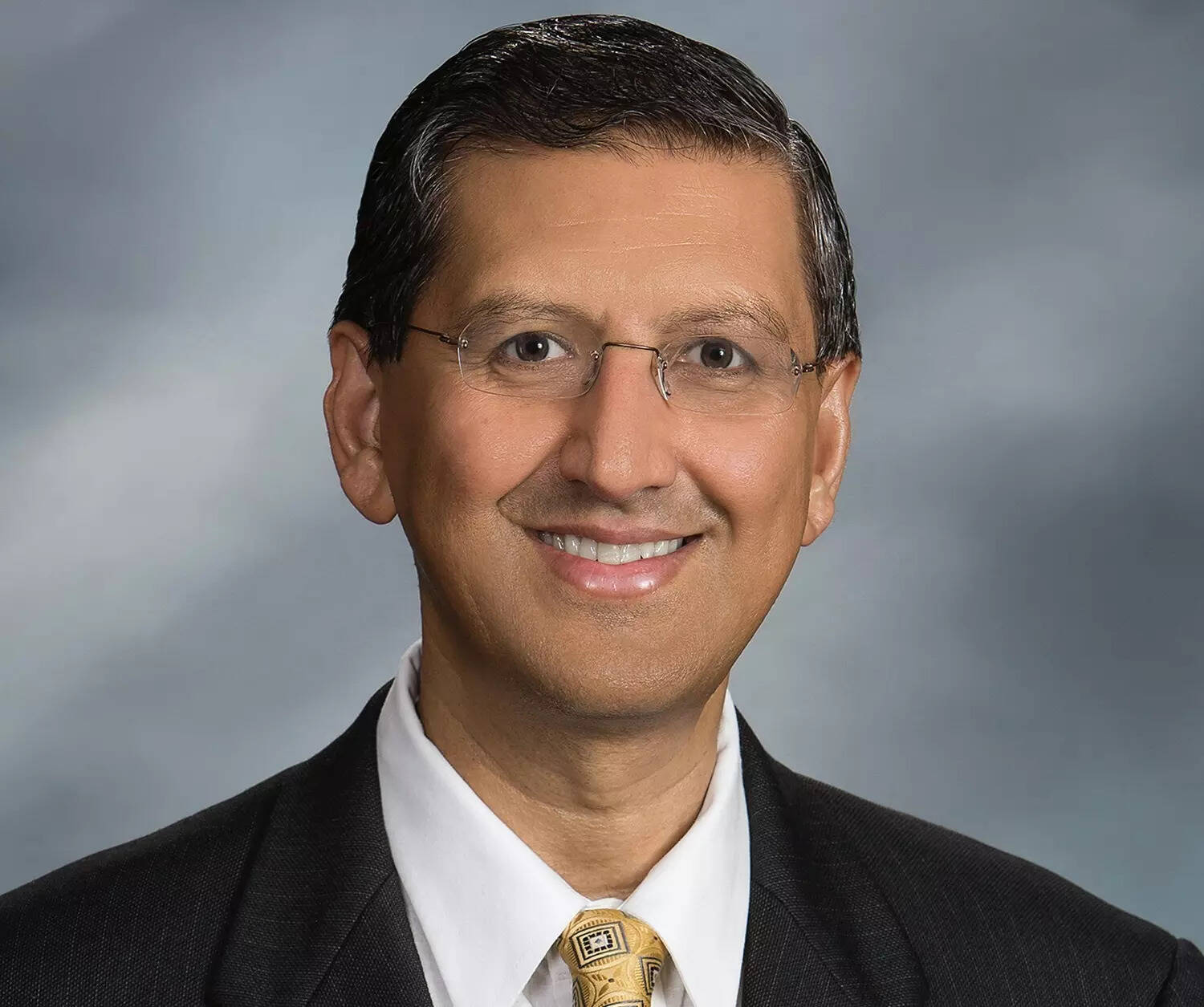
The Bhupat & Jyoti Mehta Family Foundation (MFF), founded by Rahul Mehta in 1996, has launched eight academic schools across six Indian Institutes of Technology (IITs) — a feat that underscores not just financial generosity but a deep, sustained commitment to institution-building.
The latest milestone in this journey is the establishment of two schools at IIT Indore: the Mehta Family School of Sustainability and the Mehta Family School of Biosciences and Biomedical Engineering. These are not mere additions to the university’s infrastructure—they are intellectual ventures aimed at creating India’s first BTech in Environmental Economics and Sustainable Engineering, and academic hubs at the intersection of biology, technology, and AI.
What makes the MFF’s approach noteworthy is its deliberate alignment with India’s long-term national missions — ranging from climate resilience and healthcare innovation to digital transformation and talent development. At a time when most corporate and philanthropic contributions are confined to the donor-recipient model, the Mehta Family Foundation offers a radically different blueprint: one of co-creation, intellectual partnership, and long-range vision.
As Secretary of the Department of Science & Technology, Prof. Abhay Karandikar, recently observed, Mehta’s consistent ability to identify thematic areas that mirror the government’s S&T priorities is “extraordinary.”
In this exclusive conversation with Anoop Verma, Editor-News, ETGovernment, Rahul Mehta offers a rare glimpse into the philosophy behind his Foundation’s work. He discusses why education is the surest path to economic prosperity, how sustainability and biosciences emerged as top priorities, and why philanthropy must encompass not just treasure, but also time and talent.
With candid reflections on India’s innovation ecosystem and the challenges of collaborative institution-building, Mehta presents a case for mission-driven philanthropy that doesn’t just support institutions—it helps shape their very DNA.
Edited excerpts:
Your Foundation has launched eight academic schools across premier institutions in India, including the latest at IIT Indore. What is the larger vision that drives your investment in higher education?
I’ve always believed that countries that invest in intellectual capital generate long-term economic prosperity. There’s no question anymore that education directly drives prosperity. Countless studies in economics and the social sciences have shown this. So, for us, philanthropy isn’t just about giving money—it’s about creating long-term strategic impact.
If you look at the return on investment, a person educated through a well-designed institution will contribute much more to the economy than a one-time charitable transaction. That’s why our focus has always been to drive sustainable prosperity through education. We see it as the most fundamental lever for national transformation.
You’ve chosen very specific thematic areas—biosciences, sustainability, AI. How do you decide where to intervene?

Our Foundation has three core pillars: AI and data science, biosciences and biomedical engineering, and sustainability. These aren’t arbitrary choices. We pick areas where India’s future depends on innovation, and where we can create programs that don’t yet exist.
We aren’t here to duplicate what’s already available. For instance, there are enough chemical engineering programs in the country. But there was no BTech in Environmental Economics and Sustainable Engineering until now. That’s a gap worth filling—not just because it’s new, but because it prepares students for where the world is headed.
Healthcare and sustainability are going to be defining areas for the next hundred years, particularly for India. Whether it’s preparing for pandemics, dealing with antimicrobial resistance, or developing climate resilience—we need an educated workforce to lead those transformations.
How do you see education addressing India’s lag in manufacturing, especially in frontier areas like bio-manufacturing?
Education has a central role to play. Take bio-manufacturing—it’s not just about pharma. It’s also about converting waste into productive assets. For example, the methane from landfills can now be biologically transformed into fish feed. That’s innovation. That’s sustainability.
But none of this is possible without a trained workforce, deep research infrastructure, and a mindset of innovation. Whether it’s drug discovery, diagnostics, or bio-based industrial processes, we need to build the ecosystem—and that starts with education.
Your most recent initiative is with IIT Indore. Why did you choose this institute for launching schools in Sustainability and Biomedical Engineering?
This is actually our sixth IIT partnership and the eighth school we’ve launched. Every project we take up is carefully evaluated for leadership, faculty quality, and long-term vision. Prof. Suhas Joshi, the Director of IIT Indore, is a visionary leader. That matters immensely when you’re trying to build something transformational.
When we set up a school, it’s not just a donation—it’s an 18-month journey of co-creating the curriculum, defining research focus, and planning the degree structure. We work closely with global experts like Prof. Ananth Shankar and Prof. Rajesh Gupta to design programs that will remain relevant ten or twenty years down the line. It’s a deep collaboration.
So you’re not just offering funding, but also your time and expertise?
If there’s one thing I’d like people to take away, it’s that philanthropy should never be seen only as treasure. It must also be time and talent.
We invest immense energy into each project—our own time, and the expertise of our global network. That’s what truly creates value. Anyone can write a cheque, but to create something meaningful, you need to be deeply involved. And we are.
Are your initiatives aligned with India’s national missions, like NEP 2020, Bio-E3, or the SDGs?
Very much so. Just look at what Prof. Abhay Karandikar, Secretary of DST, or Dr. Rajesh Gokhale from DBT said at our MoU event. They’ve acknowledged that our work is completely aligned with the government’s priorities.
But beyond policy alignment, we’re addressing the core of every mission—talent creation. Missions cannot succeed unless you build the intellectual and technical capacity to implement them. That’s what our schools are designed to do: produce the next generation of leaders, researchers, and problem-solvers.
How important is collaboration—across academia, government, and private sector—for such ambitious initiatives?
It’s absolutely crucial. In fact, I’d say co-creation is at the heart of everything we do. Unfortunately, in India, philanthropy often follows a donor model—where a company gives money and steps away. But we believe in partnerships. Deep, strategic, long-term collaborations with institutions and individuals who care.
We bring in academic experts, industry advisors, and policymakers to the table. It’s only through this multi-stakeholder approach that we can build institutions that are not just relevant, but resilient and future-ready.
What message would you give to other philanthropists or leaders who want to contribute to India’s knowledge economy?
Think beyond chequebooks. If you really want to change the country, bring your time, your networks, and your ideas to the table. India doesn’t just need donors—it needs collaborators. It needs people willing to co-create. And when you give with that spirit, the impact you generate is far greater—both for the nation and for your own sense of purpose.

